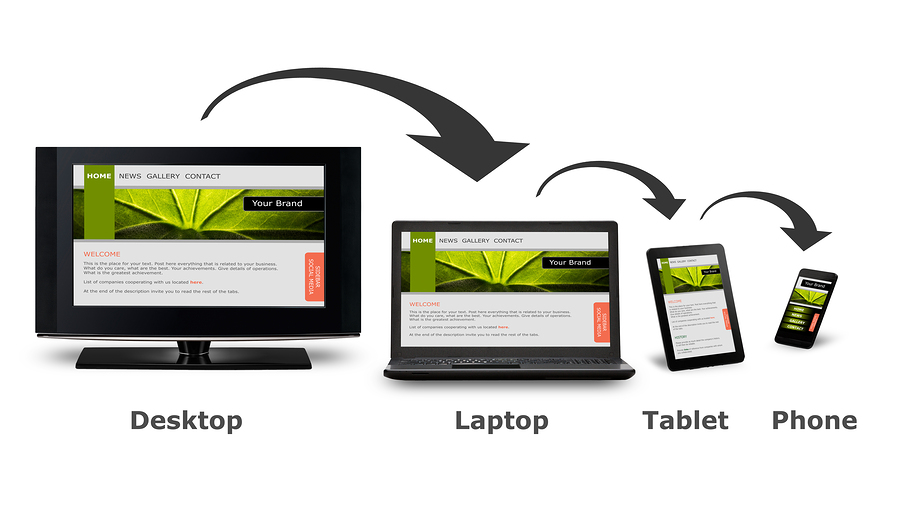Lately, I have read a number of articles and had a number of conversations addressing the importance or unimportance of author websites. Since social media sites are supposed to be the magic marketing-potion for every author, stodgy old websites seem to be the domain only of out-of-touch sluggards.
You probably have an inkling where I stand on the issue.
Should an author have a website? Yes.
If you are serious about being an author, you need to treat your status like a business and businesses need websites. They communicate who you are, where you are, what you offer, what you stand for and how to get connected.
Every reader does not use Facebook, check Twitter every hour or obsess over Instagram.
Websites answer questions about the author quickly. No digging, no searching multiple locations, the answers are all in one place. Websites are home base.
What kind of books do you write?
Why do you write?
What is your unique approach to your work?
Where are you speaking?
How can I get in touch with you?
What literary agent do you have?
Who do you know and respect?
Links to your books, your social media, your endorsers
Unique content for web-browsers
I can understand why some would suggest websites are unnecessary. They represent the old way, and old ways are boring. But the old way has not been replaced, it has only been supplemented.
Mostly, I think websites are de-prioritized because they are time consuming and sometimes expensive to manage. There’s a URL to pay for, hosting fees and updates.
The constant updates.
It’s enough to drive you crazy.
All the reasons for eliminating websites from the author communication-mix focus on everything other than the most important element in book publishing…the reader.
You don’t do a website for you, you do it for readers. Sure it is inconvenient and time-consuming. Successful businesses or organizations all do things they would rather not except they know that it isn’t about them…it’s about what is good for their constituency.
You are the customer service representative for your work and often it is messy and complicated to deliver great customer service. A customer-centric approach begins with the overall attitude, “It’s not about me.”
Every organization or business (authors are small businesses) has a life cycle that repeats itself over and over again.
- The thrill of doing good work
- The drill of doing the same thing over and over
- Focus inward to make life easier
- The decline of the work
- Revelation to change to outward focus toward customer or audience
- The thrill returns
- The drill of doing the same thing over and over
- Focus inward to make life easier
Not having a website is the result of #3 (and #’s 8, 13, 18, 23, etc) as the inward focus leads to less work for you, but leads to #4, decline of your work.
If you think of an author as a small business, you can identify what stage you are in and shorten the time spent on the negative stages, cycling back to the thrilling part when you are doing the right things for the right reasons and thinking about the reader first.





Hi Dan,
I just got a new job and posted it on LinkedIn. I’ve had so many contacts from friends, and I started wondering if it’s going to become more popular than other social media.
I still struggle with what to put on a website because I’m not published. I know some people have links to their blog, but I struggle with what else to add because I don’t have an agent, and I don’t have a speaking schedule.
On a positive note, I have narrowed the focus on my blog thanks to you.
Have a great day!
Even if you’re not published yet, you can still get creative with your website 🙂 Try having one page for your blog, an “about you” page, maybe a page for links to other sites that are important to you, and a “writing helps” kind of page that lists all the books that impacted you on your writing journey.
Thanks for the suggestions, Georgiana!
Thank you for the reminder, Dan. It is about the reader. The business side of writing can be a drag for sure. I like the life cycle you shared. I’m between 5 & 6, so I’ll watch out for 7, 8, 9, …
Blessings!
Thank you for a great post!
Do you recommend aspiring authors also have an author website? At what point in the journey would it make sense to start?
Thank you!
Yes, aspiring authors should have a website. Get it when you have an idea what you write and who you want to be. Probably not first thing, but make sure it’s not the last thing either.
Agents and publishers like to see something when considering an author.
Thank you so much! I will add it to my to-do list!
Thanks, Dan!
Dan, you have me sold. Could you please have a blog about how to find the right folks to do it for you or tips on creating your own? What steps do you recommend as a Christian literary agent that we as authors should take in getting the ball rolling? I know absolutely nothing about what is obviously crucial to being taken seriously as a writer and would appreciate some guidance.
Thanks for your postings; they are one of the highlights of my day!
Best,
Sheri
My suggestion is to look at other authors you like and spend some time at their websites. What are the common elements of each? What do you like? What are you not really crazy about?
There are some templates for authors and companies who do this, but the best first step is to develop some opinions of your own.
The best part about this advice is that you can call random web browsing as “work.”
Cool.
Sheri,
I own a small business that creates websites for writers, authors (pre-published to best-selling), and other business professionals, so I spend a lot of time analyzing author websites.
I agree with Dan’s advice about looking at other author websites. In fact, I suggest looking at author sites inside and outside of your genre, and looking at general business websites, as well. When I do this, I have a Word file open and I copy/paste elements I like and don’t like.
You won’t like all the elements on each site, but you’ll soon discover a pattern of elements that resonate with you — things you might want to incorporate into your own website.
I think I feel my own blog post on this topic coming on! If you want more info, click my name in the comments and it’ll take you to my website, where you can contact me directly.
Dan – Thanks for this article. I am teaching at two Christian writers’ conferences this weekend and next weekend — several of my workshops focus on the topic of websites, so I’m happy to read that you recommend that writers have a website. Will refer to your article during my workshops.
My website is my author hub and everything else feeds into it.
A huge benefit of a website is that we control it; we own it.
With social media the rules can change with no notice or our page could be summarily shut down. Then all we’ve worked hard to build is gone.
We don’t have this risk with a our website.
Don’t forget to have some way for your fans to encourage your fans to sign up for a newsletter or other email communication. Your own email list is GOLD. These are people who want to here from you and will be looking for your book on that big launch day.
Great post Dan, you’re right on in your admonishment. A website is valuable and is in no way “old school.” I would also echo Susan B.’s advice to capture fan emails. List building is your fastest path to successful publicity in a book launch, it’s also an excellent way to build a relationship with your readers. Finally, a website on it’s own, without a strategy for getting/keeping traffic would be akin to opening up a convenience store in the middle of a corn field, not very convenient. Authors should build networks with other authors and acquire links back to their site, they should also put some of those writing chops to use in building a blog presence that Google will reward with higher search results for specific key words. None of this is rocket science, but it is work and with some consistency an author with a discoverable web presence will find an ever-increasing audience.
Dan,
Does the industry consider a Facebook page as an author’s website?
Here’s a great guide on creating a business website after you’ve decided to do so! https://www.hostgator.com/blog/creating-first-business-website/